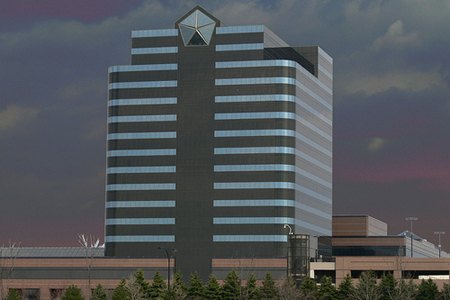How Much Rent Does Chrysler Pay Cerberus?
President Bush has pledged $4b of your taxes to Chrysler. Ultimately, the money will be under the control of the ailing American automaker’s owners, Cerberus Financial. Despite the enormous call on the public purse to fund a company whose prospects are dimmer than a 70’s porno theater, the secretive private equity group that pulls ChryCo’s strings has not opened the company’s books to full public scrutiny. Fortunately, we have a little something called the free press (and I don’t mean you Freep) ready to poke its nose into the dealings of the company about to poke its nose into the federal trough. The Wall Street Journal [sub] reports that “Public documents filed in Oakland County, Mich. show a Cerberus subsidiary called Auburn Hills Owner, LLC, bought the 458-acre complex on Aug. 3, 2007, for $325 million. That same day, Cerberus completed the deal to take over 80.1% of Chrysler from Daimler.” While the Journal seems obsessed with the fact that ChryCo employees didn’t know that Chrysler proper doesn’t own the Auburn Hills campus, the accounting behind the transaction is more interesting…
“While trying to sell Chrysler, Daimler put a higher value on the property. The sales binder that Daimler showed to potential buyers of Chrysler said the headquarters had a book value of $800 million and that Daimler had received an offer of $1.2 billion for the complex in August 2006, according to people who have seen the two-inch thick prospectus.
“The city of Auburn Hills assessed the property’s value at just over $460 million last year, down from a peak of approximately $620 million in 2005… On the day the acquisition of Chrysler closed, Cerberus secured a loan of $225 million against the headquarters building from Citigroup Global Markets Realty Corp., public documents show.
“A person familiar with the matter said Cerberus used that money to pay part of the $325 million it owned [sic] Daimler for the building.”
The bottom line: Cerberus owns the property and Chrysler pays rent to cover the nut. What’s the nut? What’s the rent? Unknown. As “investors” in Chrysler, taxpayers should demand to know every detail of their business. What other skeletons lurk in Cerberus’ closet?
[thanks to tced2 for the link]
More by Robert Farago
Latest Car Reviews
Read moreLatest Product Reviews
Read moreRecent Comments
- 1995 SC Didn't Chrysler actually offer something with a rearward facing seat and a desk with a typewriter back in the 60s?
- The Oracle Happy Trails Tadge
- Kwik_Shift_Pro4X Union fees and corruption. What can go wrong?
- Lou_BC How about one of those 2 foot wide horizontal speedometers out of the late 60's Ford Galaxie?
- Lou_BC Was he at GM for 47 years or an engineer for 47 years?


































Comments
Join the conversation